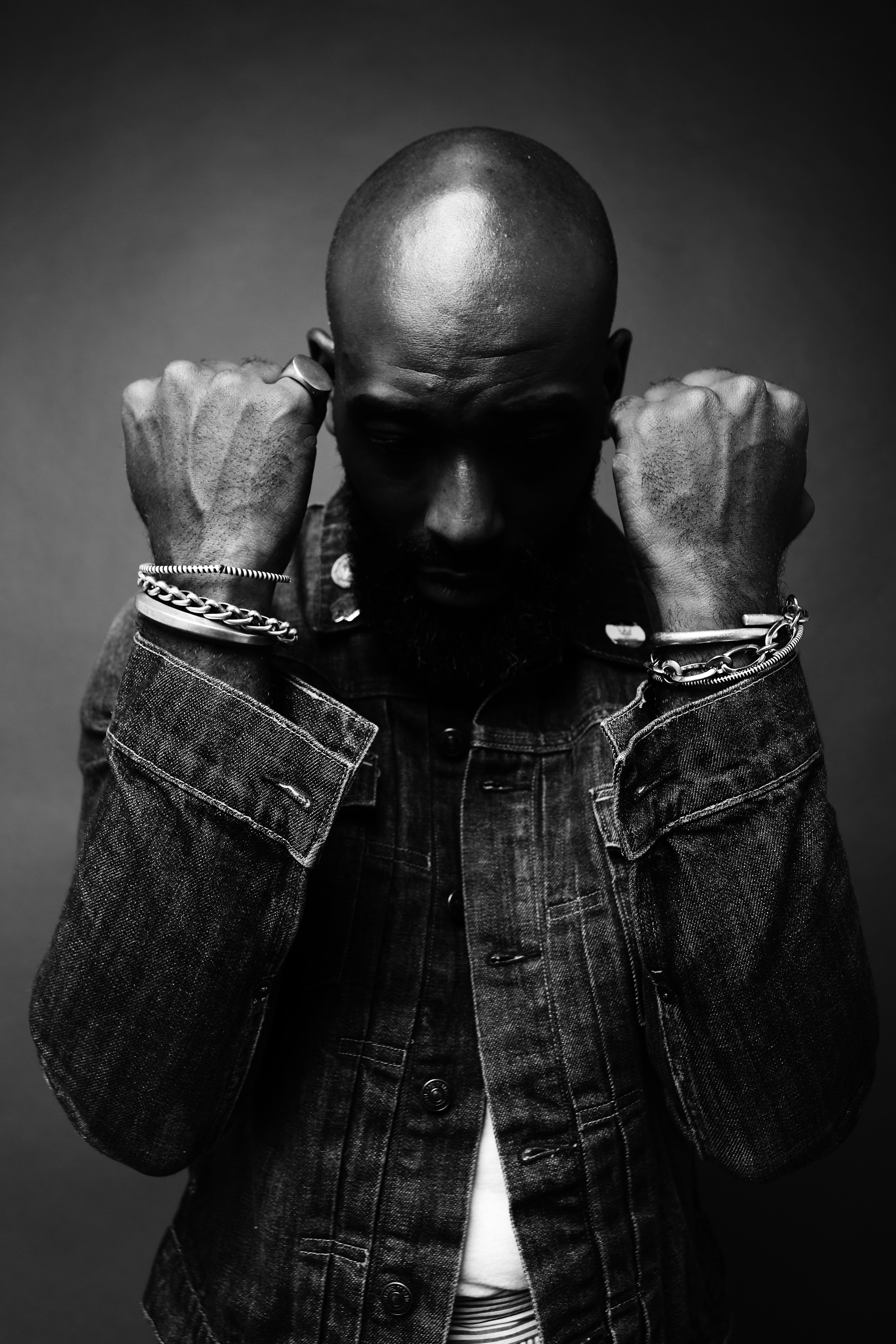When I have been asked during these last weeks who caused the riots and the killing in LA., my answer has been direct and simple: Who is to blame for the riots? The rioters are to blame. Who is to blame for the killings? The killers are to blame. Yes, I can understand how people were shocked and outraged by the verdict in the Rodney King trial. But there is simply no excuse for the mayhem that followed. To apologize or in any way to excuse what happened is wrong. It is a betrayal of all those people equally outraged and equally disadvantaged who did not loot and did not riot-and who were in many cases victims of the rioters. No matter how much you may disagree with the verdict, the riots were wrong. And if we as a society don't condemn what is wrong, how can we teach our children what is right?The reader will note that the reference to Murphy Brown was just a minor point near the end of the speech, but of course, that's what the ignoramuses (ignorami?) in the media picked up on, and Mr. Quayle was widely ridiculed for criticizing a fictional television character. The bias against Mr. Quayle that was already present in the media was so strong that few people bothered to examine or debate the entire content of his speech. An exception was The Atlantic Monthly, whose April 1993 issue carried the lengthy cover story by Barbara Dafoe Whitehead titled Dan Quayle Was Right. Unfortunately for Mr. Quayle, the article was published too late to prevent his re-election as Vice-President, as he and President George Bush were defeated in the November 1992 election. The one part of Mr. Quayle's speech with which I disagree is near the beginning, where he takes issue with the Japanese view that America's ethnic diversity is a weakness, as opposed to Japan's homogeneity, and says, "our diversity is our strength." 20 years later, that comment seems more questionable than ever, and not just in the United States. The increasing "diversity" of Trudeaupia (still officially known as Canada) has considerably weakened the unity of the society.
But after condemning the riots, we do need to try to understand the underlying situation.
In a nutshell: I believe the lawless social anarchy which we saw is directly related to the breakdown of family structure. personal responsibility and social order in too many areas of our society. For the poor the situation' is compounded by a welfare ethos that impedes individual efforts to move ahead in society, and hampers their ability to take advantage of the opportunities America offers.
If we don't succeed in addressing these fundamental problems, and in restoring basic values, any attempt to fix what's broken will fail. But one reason I believe we won't fail is that we have come so fur in the last 25 years.
There is no question that this country has had a terrible problem with race and racism. The evil of slavery has left a long legacy. But we have faced .racism squarely, and we have made progress in the past quarter century. The landmark civil rights bills of the 1960s removed legal barriers to allow full participation by blacks in the economic, social and political life of the nation. By any measure the America of 1992 is more egalitarian, more integrated, and offers more opportunities to black Americans - and all other minority group members - than the America of 1964. There is more to be done. But I think that all of us can be proud of our progress.
And let's be specific about one aspect of this progress: This country now has a black middle class that barely existed a quarter century ago. Since 1967 the median income of black two-parent families risen by 60 percent in real terms. The number of black college graduates has skyrocketed. Black men and women have achieved real political power - black mayors head 48 of our largest cities including Los Angeles. These are achievements.
But as we all know, there is another side to that bright landscape. During this period of progress, we have also developed a culture of poverty - some call it an underclass - that is far more violent and harder to escape than it was a generation ago.
The poor you always have with you, Scripture tells us. And in America we have always had poor people. But in this dynamic, prosperous nation, poverty has traditionally been a stage through which people pass on their way to joining the great middle class. And if one generation didn't get very far up the ladder - their ambitious, better-educated children would.
But the underclass seems to be a new phenomenon. It is a group whose members are dependent on welfare for very long stretches, and whose men are often drawn into lives of crime. There is far too little upward mobility, because the underclass is disconnected from the rules of American society. And these problems have, unfortunately, been particularly acute for Black Americans.
Let me share with you a few statistics on the difference between black poverty in particular in the 1960s and now.
In 1967 68% of black families were headed by married couples. In 1991, only 48% of black families were headed by both a husband and wife.
In 1965 the illegitimacy rate among black families was 28%. In 1989, 65% - two thirds - of all black children were born to never married mothers.
In 1951 9.2% of black youth between 16-19 were unemployed. In 1965, it was 23%. In 1980 it was 35%. By 1989, the number had declined slightly, but was still 32%.
The leading cause of death of young black males today is homicide.
It would be overly simplistic to blame this social breakdown on the programs of the Great Society alone. It would be absolutely wrong to blame it on the growth and success most Americans enjoyed during the 1980s. Rather, we are in large measure, reaping the whirlwind of decades of changes in social mores.
I was born in 1947, so I'm considered one of those "Baby Boomers" we keep reading about. But let's look at one unfortunate legacy of the "Boomer" generation. When we were young, it was fashionable to declare war against traditional values. Indulgence and self-gratification seemed to have no consequences. Many of our generation glamorized casual sex and drug use, evaded responsibility and trashed authority.
Today the "Boomers" are middle-aged and middle c1ass. The responsibility of having families has helped many recover traditional values. And, of course, the great majority of those in the middle class survived the turbulent legacy of the 60s and 70s. But many of the poor, with less to fall back on, did not.
The intergenerational poverty that troubles us so much today is predominantly a poverty of values. Our inner cities are filled with children having children; with people who have not been able to take advantage of educational opportunities; with people who are dependent on drugs or the narcotic of welfare. To be sure, many people in the ghettos - struggle very hard against these tides - and sometimes win. But too many feel they have no hope and nothing to lose. This poverty is, again, fundamentally a poverty of values.
Unless we change the basic rules of society in our inner cities, we cannot expect anything else to change. We will simply get more of what we saw three weeks ago. New thinking, new ideas, new strategies are needed...
...And for those concerned about children growing up in poverty, we should know this: marriage is probably the best anti-poverty program of all. Among families headed by married couples today, there is a poverty rate of 5.7 percent. But 33.4 percent of families headed by a single mother are in poverty today.
Nature abhors a vacuum. Where there are no mature, responsible men around to teach boys how to be good men, gangs serve in their place. In fact; gangs have become a surrogate family for much of a generation of inner-city boys. I recently visited with some former gang members in Albuquerque, New Mexico. In a private meeting, they told me why they had joined gangs. These teenage boys said that gangs gave them a sense of security. They made them feel wanted, and useful. They got support from their friends. And, they said, "It was like having a family." "Like family" - unfortunately, that says it all.
The system perpetuates itself as these young men father children' whom they have no intention of caring for, by women whose welfare checks support them. Teenage girls, mired in the same hopelessness, lack sufficient motive to say no to this trap...
...Ultimately however, marriage is a moral issue that requires cultural consensus, and the use of social sanctions. Bearing babies irresponsibly is, simply, wrong. Failing to support children one has fathered is wrong. We must be unequivocal about this.
It doesn't help matters when prime time TV has Murphy Brown - a character who supposedly epitomizes today's intelligent, highly paid, professional woman - mocking the importance of fathers, by bearing a child alone, and calling it just another "lifestyle choice."
I know it is not fashionable to talk about moral values, but we need to do it. Even though our cultural leaders in Hollywood; network TV, the national newspapers routinely jeer at them, I think that most of us in , this room know that some things are good, and other things are wrong. Now it's time to make the discussion public.
It's time to talk again about family, hard work, integrity and personal responsibility. We cannot be embarrassed out of our belief that two parents, married to each other, are better in most cases for children than one. That honest work is better than hand-outs - or crime. That we are our brothers' keepers. That it's worth making an effort, even when 'the rewards aren't immediate.' So I think the time has come to renew our public commitment to our Judeo-Christian values--in our churches and synagogues, our civic organizations and our schools. We are, as our children recite each morning, "one nation under God." That's a useful framework for acknowledging a duty and an authority higher than our own pleasures and personal ambitions.
If we lived more thoroughly by these values, we would live in a better society. For the poor, renewing these values will give people the strength to help themselves by acquiring the tools to achieve self-sufficiency a good education, job training, and property. Then they will move from permanent dependence to dignified independence.
I have a long memory, and when media people in 1992 began ridiculing Dan Quayle for criticizing Murphy Brown, I remembered that 20 years earlier, in 1972, there had been serious discussion by liberals in the media about whether it was proper for the television comedy series All in the Family to feature the bigoted character named Archie Bunker. For example, see some the references in Nina Shevzov-Zebrun's May 27, 2011 essay Archie Bunker. Another example was the cover story of the June 1972 issue of Ebony magazine, Is Archie Bunker the Real White America? by Charles L. Sanders. Those unable to remember 1972 may find it hard to believe that Archie Bunker was such a popular character that Mad magazine had a mini-poster on the back cover of one issue reading "Nixon and Bunker in '72," and that Archie Bunker was entered into nomination as a candidate for Vice-President of the United States at the Democratic National Convention that summer.

.JPG)





































No comments:
Post a Comment